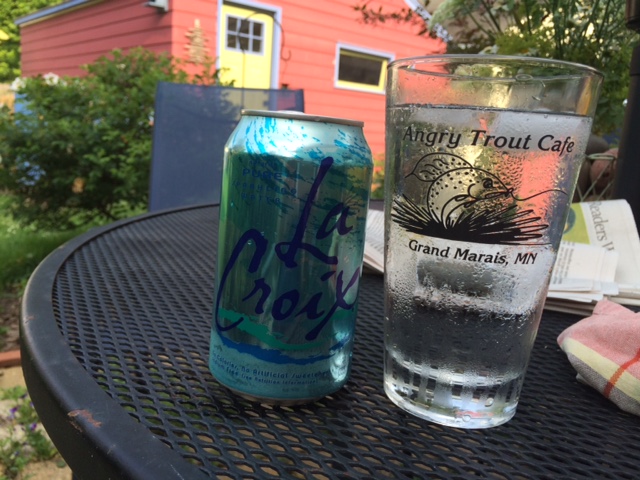I’ll say this much about this whole elimination diet stuff: It can sure pull a guy out of his routine. Two weeks into the experiment, I’ve revamped my morning tea ritual and ditched my weekend latté run, dropped my after-dinner pairing of wine and dark chocolate, and abandoned my fried egg breakfasts. Nowadays, when I talk about having a cold one after work it’s a glass of sparkling water.
For better or for worse, I’m a creature of habit, so I’m a little surprised to find that I’ve been able to shift such timeworn routines so quickly. It’s not been a perfect transition, by any means. I haven’t always completely complied with my doctor’s dietary orders. There’s been a beer here, a glass of wine there, an occasional bit of dessert that may have involved something resembling the banned sugar and dairy. I am a fallible human, after all.
But it’s got me thinking a lot about the nature of habit. So I returned to a piece we ran a couple of years ago by Charles Duhigg. In his book, The Power of Habit, Duhigg describes the psychological underpinnings of habitual behavior and concludes that any habit can be overcome by practicing four distinct steps.
4 Steps to Overcome a Bad Habit
- Identify the routine
- Experiment with rewards
- Isolate the cue
- Have a plan.
Citing research done in the 1990s at the Massachusetts Institute of Technology, Duhigg notes that anyone who has managed to overturn a bad habit has taken the same basic path. “They had identified the routine around the habit, experimented with different rewards to satisfy the craving the behavior was trying to fulfill, and isolated the cue that triggered the behavior in the first place,” he writes. “Finally, those who successfully executed habit change had put a plan in place that would help them respond differently to the cue (whether it was fatigue driving them to caffeine or loneliness driving them to the bar) and nudge them in the direction of the new habit, thus preventing an unconscious return to the old behavior.”
Let’s take my after-work cold one on the patio. This may be more genetic than I’m giving it credit for (my father did the same thing every night when he came home from work), but I’ve always seen that glass of beer as a bit of a reward for making it through another day, an excuse to relax, maybe look at the newspaper for a while before assembling dinner. The cue was simply arriving at home. This is not complicated, people. Go to work, come home, have a beer before dinner.
What Duhigg and others smarter than me have figured out is that it’s not about the beer. It’s about letting go of everything having to do with work and taking a few moments to transition quietly to domestic life. I’ve found — much to my surprise, actually — that I can accomplish this just as happily with a glass of water as I can with a bottle of Grain Belt. (Sorry, Dad.)
And that’s a good thing, because I often used to follow that bottle of beer before dinner with a couple glasses of wine with the meal and then another — with just a few squares of dark chocolate — after dishes were done. That’s when My Lovely Wife and I would repair to the porch or patio (in the warmer months) to read or just catch up at the end of the day. We’ve now found that our ability to read and converse is not hampered by the lack of alcohol or chocolate.
Will I never again have a bottle of beer on the patio after work or share a bit of wine and chocolate with MLW as we discuss the remote possibility that I’ll ever get around to patching the garage roof? No, because total deprivation gets you nowhere in the long run. I’m with Oscar Wilde on this one when he said, “Everything in moderation, including moderation.” What these last two weeks have taught me is that even a guy as stuck in my ways as I am can make healthy changes in his behavior if he practices mindfulness and intention.
I’m happy to have untangled myself from a number of less-than-healthy habits, but I’m even happier to have discovered the ability to be present enough to make clear-headed decisions about things that I know have an impact on my overall well-being. Like Duhigg says, you need a plan. But that plan has to be sustainable for the long haul.
MLW likes to recall a story she once read about a strict vegetarian and devoted health advocate who traveled to Germany. The folks he was visiting invited him to join them in meals which featured a great deal of beer and a slightly lesser amount of sausage. The fellow was flummoxed at first, but soon discovered that the sheer conviviality of these meals completely overwhelmed any concerns he had about the food and drink.
This makes a lot of sense to me. So, yesterday afternoon, when my old pal The Commissioner invited me over for a cold one, I gladly accepted. We had a lively conversation and that beer tasted about as good as any I can remember. And you know what? That one was just enough.

This Post Has 0 Comments